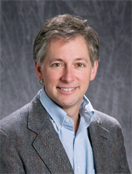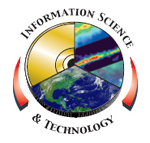
Please Note: The content on this page is not maintained after the colloquium event is completed. As such, some links may no longer be functional.
Dr. Ed Seidel
Solving Einstein's Equations through Computational Science Advancing Computational Science through Gravity
Wednesday, May 16, 2007
Building 3 Auditorium - 3:30 PM
(Refreshments at 3:00 PM)
Einstein's equations of general relativity govern such exotic phenomena as black holes, neutron stars, and gravitational waves. Known for nearly a century, they are among the most complex in physics, and require very large scale computational power - which we are just on the verge of achieving - and advanced algorithms, to solve in the general case. I will motivate and describe the structure of these equations, and the worldwide effort to develop advanced and collaborative computational tools utilizing supercomputers, data archives, optical networks, grids, and advanced software to solve them in their full generality. I will focus on applications of these tools to extract new physics of relativistic astrophysical systems. In particular, I will summarize recent progress in the study of black hole collisions, considered to be promising sources of observable gravitational waves that may soon be seen for the first time by the worldwide network of gravitational wave detectors (LIGO, VIRGO, GEO, and others). Edward Seidel is the director of the Center for Computation & Technology at Louisiana State University and the Floating Point Systems Professor in LSU�s Departments of Physics and Astronomy, and Computer Science.
Dr. Seidel is well known for his work on numerical relativity and black holes, as well as in high�performance and grid computing. He earned his Ph.D. from Yale University in relativistic astrophysics. He headed the numerical relativity group as a professor at the Max�Planck�Institut fuer Gravitationsphysik (Albert-Einstein-Institute) in Germany from 1996�2003, where he maintains an affiliation. He was previously a senior research scientist at the National Center for Supercomputing Applications and associate professor in the Physics Department at the University of Illinois. Seidel is a recipient of the 1998 Heinz�Billing�Preis of the Max-Planck-Gesellschaft; a recipient of the 2001 Gordon Bell Prize; and winner of various HPC Challenge awards at SC98, SC01, and SC02. In 2004, Seidel was named the Rising Star of the Year at the Governor�s Technology Awards in Louisiana and one of HPCwire�s Top People and Organizations to Watch. In 2006 he was chosen as the recipient of the Sidney Fernbach Memorial Award. He is the co-chair (emeritus) of the Applications Research Group, Global Grid Forum and chief scientist for the Louisiana Optical Network Initiative (LONI). He is the author or co-author of more than 150 publications and serves on numerous national and international committees and advisory boards
IS&T Colloquium Committee Host: Jim Fischer
